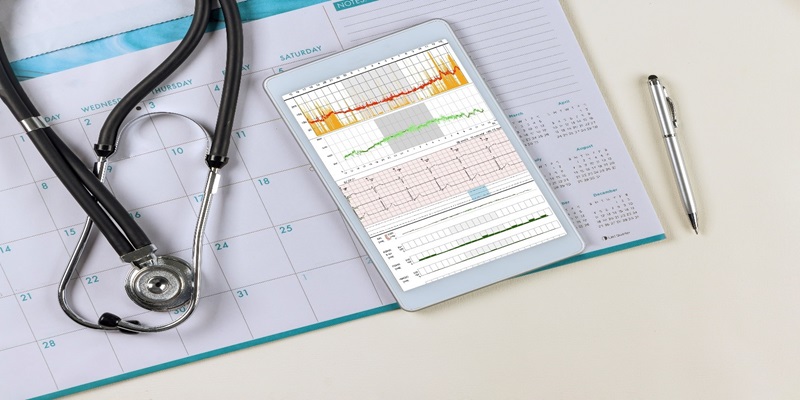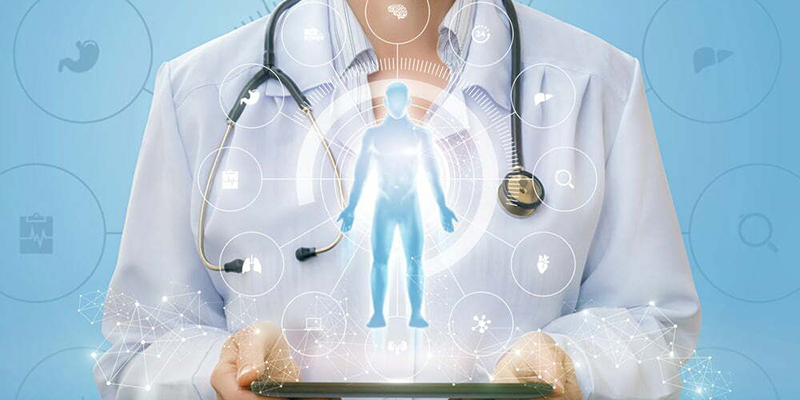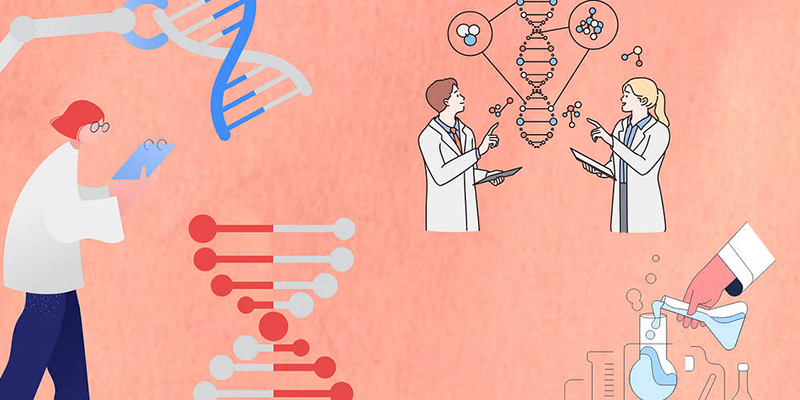Advertisement
Aug 27, 2024 By Hira

Digital health tools are transforming the healthcare landscape and system. These technologies, which range from wearable gadgets that monitor vital signs in real time to AI-powered platforms that aid in diagnosis and treatment planning, empower patients and healthcare providers for the overall betterment of the healthcare sector.
This blog examines the critical ways digital technology is transforming the future of medicine and the impact of digital health tools on making healthcare more personalized, accessible, and effective than ever before.

AI-Driven Platforms In Diagnosis And Treatment
Introduction To AI in Healthcare
Artificial intelligence (AI) is transforming how diseases are diagnosed and treated. AI-driven platforms leverage advanced algorithms and vast amounts of data to assist healthcare providers in making more accurate and timely decisions. AI tools enhance diagnostic accuracy, predict patient outcomes, and recommend personalised treatment plans by analyzing patterns in medical data that might be too complex or subtle for human analysis.
AI In Diagnostic Tools
One of the most significant roles of AI in healthcare is its application in diagnostic tools. For instance, AI algorithms have been developed to identify early signs of cancer in radiological images, sometimes even before symptoms appear. In dermatology, AI-powered apps can assess skin lesions and moles, providing a risk assessment for conditions like melanoma. These tools speed up the process, allowing quicker interventions and better patient outcomes.
Personalized Treatment Plans
The impact of AI extends beyond diagnosis to the personalization of treatment plans. AI can analyze data from various sources, including genetic information, medical history, and lifestyle factors. For example, in oncology, AI can help identify the most effective chemotherapy regimens based on a patient's genetic profile, reducing the trial-and-error approach traditionally associated with cancer treatment.
Benefits Of AI in Healthcare Delivery
The benefits of AI in healthcare are profound, particularly in improving accuracy, speed, and efficiency. AI-driven platforms reduce the risk of human error, which is a critical factor in medical diagnostics and treatment. They also significantly speed up the diagnostic process, allowing healthcare providers to make decisions faster. Additionally, AI systems can operate 24/7, offering continuous support and analysis, enhancing healthcare delivery's overall efficiency.
Real-World Applications Of AI in Healthcare
Real-world applications of AI in healthcare are already demonstrating its potential. For instance, IBMs Watson for Oncology uses AI to analyze patient data and recommend treatment options, drawing from a vast database of medical literature and clinical guidelines. Another example is Google's DeepMind, which has developed AI models capable of predicting acute kidney injury, giving clinicians valuable time to intervene and prevent further complications.
Telemedicine: Expanding Access To Care
Definition And Growth Of Telemedicine
This digital health tool enables patients to consult with healthcare providers via video, phone, or messaging without needing an in-person visit. Over the past decade, telemedicine has increased, driven by accessibility and the growing demand for more convenient healthcare options. The COVID-19 pandemic further accelerated its adoption, as social distancing measures and lockdowns made traditional healthcare delivery challenging.
Benefits Of Telemedicine
One of the most significant benefits of telemedicine is that patients who live far from medical facilities or specialists can now receive timely consultations and care without the burden of travel. This is especially critical for managing chronic conditions, providing mental health services, and ensuring continuity of care in regions with limited healthcare resources.
Impact On Patient-Provider Interactions And Outcomes
Telemedicine has fundamentally changed the way patients and healthcare providers interact. The shift to virtual consultations has introduced a new dynamic in the patient-provider relationship, emphasising convenience, accessibility, and continuity of care. Patients can now engage with their healthcare providers more frequently and with less effort, leading to more robust patient engagement and adherence to treatment plans.

Mobile Health Apps And Patient Empowerment
Exploration Of Mobile Health Apps
Mobile health apps, often called mHealth apps, are increasingly becoming essential tools for patients to manage their health. These apps, accessible via smartphones and tablets, offer various functionalities—from tracking physical activity and diet to monitoring vital signs and managing medications. They empower patients by providing them with easy access to health information, personalized reminders, and tools for self-care. By placing health management directly in the hands of individuals, these apps are transforming how patients engage with their health and interact with healthcare providers.
Enhancing Patient Engagement And Adherence
Regarding healthcare landscape digital tools, one of the key benefits of mobile health apps is their ability to enhance patient engagement and adherence to treatment plans. Many apps are designed to provide daily reminders for taking medications, tracking symptoms, or following a specific diet or exercise regimen.
Examples Of Popular Health Apps And Their Impact
Fitbit: While primarily known as a fitness tracker, the Fitbit app offers comprehensive health monitoring, including tracking physical activity, sleep, heart rate, and stress levels.
MyFitnessPal: This app is widely used for diet and nutrition tracking. By allowing users to log their daily food intake and monitor their caloric and nutritional consumption, MyFitnessPal helps users make healthier dietary choices and manage their weight effectively.
Headspace: Focused on mental health, Headspace provides guided meditation and mindfulness exercises to help users manage stress and anxiety and improve their mental well-being.
Clue: A leading app for menstrual cycle tracking, Clue helps users track their periods, fertility, and symptoms.
Technology In Healthcare Transformation A Conclusion
Digital health tools radically change the healthcare landscape by providing new approaches to improve patient care, increase efficiency, and broaden access to medical services.
The future of healthcare is digital, and as technology advances, the opportunity for even more significant gains in patient outcomes grows. By embracing and leveraging these advancements smartly and efficiently, healthcare systems can become more personalized, accessible, and efficient, resulting in better treatment for everyone.
-

How Can You Enhance Sleep Hygiene with Tech and Tips?
Aug 28, 2024
-

Who Needs to Consider Functional Medicine?
Jan 01, 2000
-

What Are The Health Benefits Of Medicinal Mushrooms?
Sep 09, 2024
-

How Do Structural Barriers Impact Community Health?
Aug 27, 2024
-

Why Are Bodycare Innovations Stealing the Spotlight from Facial Skincare?
Aug 28, 2024
-

What Tech Tools Can Help Improve Your Sleep Quality?
Sep 09, 2024
-

What Are The Benefits Of Personalized Medicine For Patients?
Aug 27, 2024
-

Current Legislative And Regulatory Changes In Healthcare
Aug 27, 2024
-

How Does Preventive Medicine Influence Healthy Aging?
Aug 27, 2024
-

What Makes Medicinal Mushrooms the Hottest Health Trend?
Aug 28, 2024
-

What Are the Benefits of Peripheral Heart Action Training?
Aug 28, 2024
-

Why Genetic Testing Can Save Your Life
Jan 01, 2000
-

The Importance Of Doctor Recommendations In Consumer Health Decisions
Aug 27, 2024
-

Medical Robotics: Transforming Surgeries And Rehabilitation
Sep 09, 2024